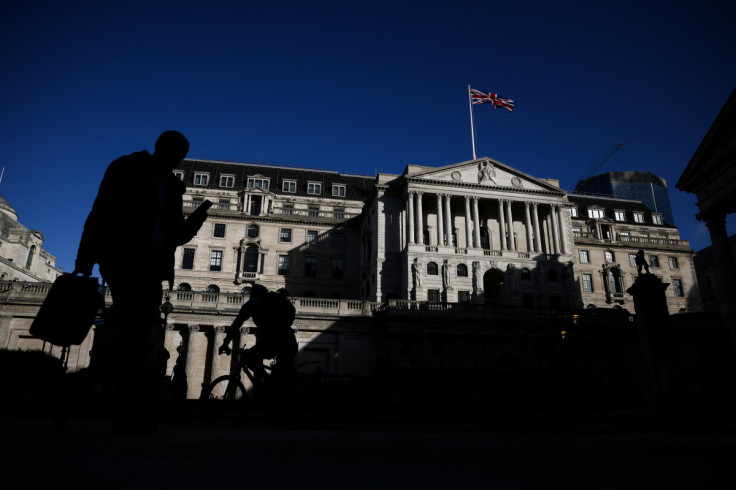UK businesses prepare for turbulence as government raises interest rates
Despite narrowly escaping a technical recession late last year, the UK economy finds itself on fragile ground as high-interest rates loom.

In a bid to rein in soaring inflation, the UK government has been diligently increasing the base interest rate. However, the effectiveness of this strategy remains in question, leaving business owners worried about the potential consequences.
Finbri, a reputable bridging finance broker, has shed light on the implications of these interest rate hikes, warning of slower economic growth and a looming recession in the United Kingdom.
With a growth rate of just 0.1 per cent from October to December 2022, the UK economy is on shaky ground despite narrowly averting a technical recession. The most recent quarterly GDP data by the Office for National Statistics (ONS) served as a timely reminder that there is very little room for error. While not officially in a recession, the fragile state of the economy raises concerns.
Theoretically, an increase in interest rates should motivate people to spend less and save more, which would lower the demand for products and services. However, inflation has remained stubbornly high at 10 per cent despite 12 straight base rate increases, raising questions about the effectiveness of this strategy.
The overall UK economy has begun to feel the effects of higher interest rates, as the cost of loan interest soared by £34.8 billion to £95.6 billion in the year before January 2023. According to a Finbri study, 71 per cent of business owners are worried about the possible impact of interest rates on their companies, which is a worrisome trend that should worry them.
Stephen Clark, a Specialist in Bridging Finance at Finbri, highlighted the mounting costs of borrowing for businesses. He predicts that the trend will continue, as business owners are also struggling with an increase in corporate tax, further exacerbating their financial challenges.
Clark emphasises that the rising borrowing costs will likely impede business growth and hinder the ability of entrepreneurs to sustain their operations. Consequently, companies will have to manage cash flow, look at alternative funding options and find ways to maintain profitability.
Finbri contends that reducing inflation, which has slowed to 8.7 per cent despite continued efforts but is still above the goal rate of 2 per cent, is the primary reason for raising interest rates. Raising interest rates is intended to limit the rate of inflation growth and aid in the economy's transition back to a more stable condition, according to the Bank of England. Even a small increase in interest rates can have a huge effect on the whole economy, despite the fact that it may appear unimportant to firms.
To shield themselves from potential losses resulting from rising interest rates, Finbri offers practical advice to businesses. Prioritising urgent debts such as bank loans, mortgages, rent payments, business rates and tax liabilities can help reduce debt burdens.
Moreover, maintaining a healthy cash flow by monitoring expenses and anticipating the effects of rising rates is crucial. Exploring alternative financing options, such as invoice financing, crowdsourcing, or bridging loans, can provide companies with affordable short-term funding.
Additionally, Finbri emphasises the importance of negotiating favourable credit conditions with lenders, securing reduced interest rates and more lenient payback schedules. Businesses are also encouraged to consider alternative strategies like franchising, online retail, or launching new products to adapt to the changing financial world.
Higher interest rates might have a significant effect on businesses as borrowing costs rise and net earnings fall. Reduced consumer spending as a result of the Bank of England's decision to raise interest rates might further affect the profitability of businesses, particularly small ones.
Additionally, concerns arise about businesses' ability to access the credit and funding required for expansion, as finance repayments become increasingly expensive. This, in turn, could negatively affect the growth rate of UK enterprises, potentially leading to the closure of unprofitable companies and the loss of more jobs.
Business owners are particularly worried about how increasing interest rates may affect their capacity to bring on new employees, Finbri stated. In an effort to minimise expenses, many UK businesses are cutting their employment. According to Finbri, Amazon, which let go of 18,000 employees in January, intends to cut 9,000 more jobs.
What will the rate of interest be in the future?
In reaction to rising inflation rates, the Bank of England base rate has been climbing over the past few months, reaching its current level of 4.5 per cent, which has raised borrowing costs. According to Finbri, over the previous three weeks, the highest projection for the BOE base rate has grown from 5 per cent to 5.25 per cent. With these projections, the future holds continued uncertainty and challenges for businesses in the face of rising interest rates.
© Copyright IBTimes 2025. All rights reserved.






















